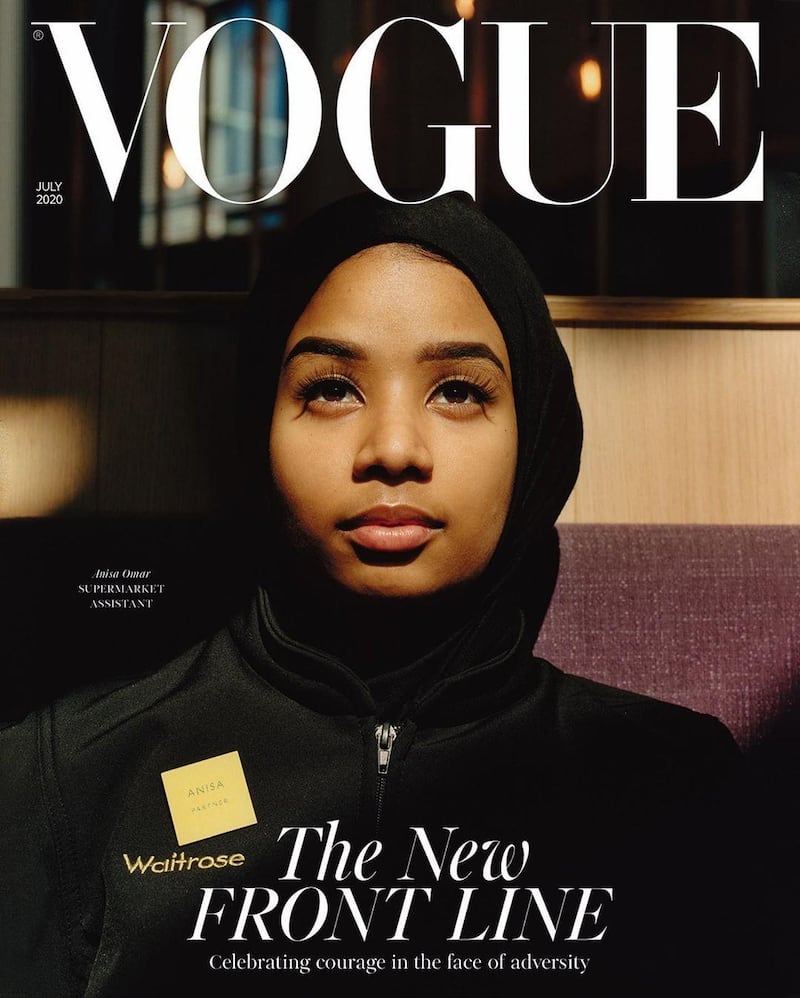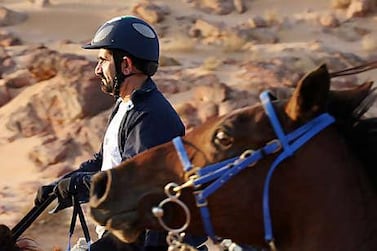The front cover of fashion magazines are usually reserved for models, designers, socialites and Hollywood's most famous faces.
But for its latest issue, British Vogue is shining a spotlight on those who once felt invisible, and who, mere months ago, certainly wouldn't have been considered by the glossy magazine's editorial team as potential cover stars.
The publication has photographed three essential workers, each of whom have continued to work throughout the coronavirus pandemic, in a bid to celebrate the real heroes of 2020.
"This chapter in history has seen society shift its attention on to some of the people in this country who are not usually afforded the spotlight," said the magazine's editor-in-chief, Edward Enninful.
"Though our pages are always filled with lived experience – joy, sadness and drama – first and foremost, Vogue proudly waves the flag for fashion, in all its empowering, escapist, lavish and identity-affording capabilities. We will always do that – this issue included. But this moment required something extra special, too: a moment of thanks."
The July issue of British Vogue features three covers, each featuring women from different professions.
Among them is Anisa Omar, a 21-year-old supermarket worker from London. The Waitrose employee, who is also studying for a degree in business management, was photographed in her uniform, along with her black hijab, for the cover image.
"When the lockdown was announced, I felt like I just had to go in and do my job. I have felt slightly anxious, but, honestly, that’s because we’re in a pandemic now – people are just more on edge," she told the publication.
"You’re putting yourself at risk by being at work, but it’s worth it because you’re helping people. If you show in your face you feel some type of way about the pandemic, it shows to customers. If I can put a smile on someone’s face because I’m smiling, that’s amazing for me. That’s all I need."
Omar has spent the pandemic working on the supermarket's Rapid team, which fulfills online orders, and says she has felt safe in her working environment.
The Covid-19 crisis has resulted in a shift in the way her work is viewed by customers, she believes.
"Before the pandemic, people would look at us as service assistants – we’re there to show them where the eggs are or if they want to complain about something. But now they’re a lot more understanding. They understand that we’re here all the time, and they don’t have to leave their houses. People are a lot nicer, they’re warmer," Omar said.
"It’s nice being a key worker. My job was not something that was that big of a deal before. But now it’s like we’re important. We have to be here, regardless of what’s happening in the world. It’s more than just a job now.”
Midwife Rachel Millar, 24, who works at a London hospital, and Narguis Horsford, a driver for London Overground trains, are also featured in the issue.
"I am no hero, but I’m proud of being a train driver and the essential role we are playing during the coronavirus crisis," said Horsford. "This has certainly shown us that life is short. And we can’t take anything for granted. I can’t see myself doing anything else.”
All three cover stars' portraits were taken by Jamie Hawkesworth, who captured the shots while practising social distancing.
"I can think of a no more appropriate trio of women to represent the millions of people in the UK who, at the height of the pandemic, in the face of dangers large and small, put on their uniforms and work clothes and went to help people," added Enninful.







